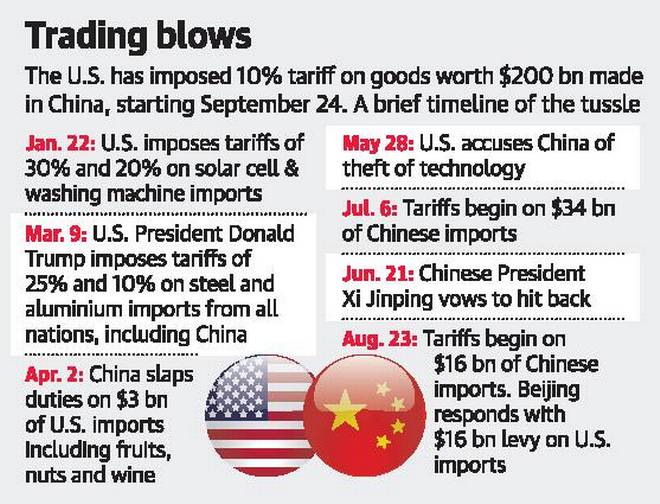900 319 0030
enquiry@shankarias.in
Why in news?
The U.S. and Chinese Presidents, Donald Trump and Xi Jinping, agreed to a 90-day truce in a trade dispute, at the G20 summit in Buenos Aires.
What was the dispute?

What are the highlights of the deal?
How does the future look?
Source: Economic Times, The Hindu